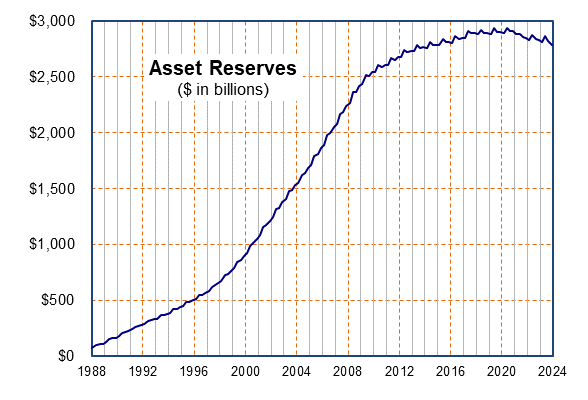As the years roll on, Social Security looks more like a welfare plan and less like a public pension system. How can I say this? Simple. The money’s worth difference between low-wage earners and highest-wage earners has grown over time. And it will continue to grow.
This is an interesting statement. It's kind of surprising, since the last major change in the SS rules was 30 years ago. What's going to happen in the future to make SS even more favorable to low wage workers?
I tried to find his numbers in the Actuaries' report. There are so many that this author could have used, I'm not sure if I did. First, I had to parse this:
In 1985 low-wage workers received about 2.25 times the money's worth of the highest-wage workers. For the kids who are 11 years old today ...
I'm guessing that "In 1985 ..." should have read "For workers born in 1920..." to make it consistent with the "11 years old today" aka "born in 2004". Those two birth years are shown in the report.
Sure enough, I can find the trend in the ratio he created. But, when I compared birth year 1973 to birth year 2004, this trend disappeared. (at least for the case I tried)
1973 seems relevant because that cohort started working after the last set of changes. So their entire careers are under the new rules. One of those changes was to index the maximum taxable earnings to the wage index, instead of using the prior ad hoc adjustments. When they did this, they widened the difference between the middle and the top, so high end workers paid more taxes.
So this trend really reflects the taxes higher wage workers have been paying for the last 30 years, it just says that the additional benefits they get from those taxes are pretty small. Workers who look at the taxes they are currently paying and compare them to their projected benefits have already seen this. I don't see any big changes in the future.
So the "continue to grow" needs to have some caveats like "if you look at people only when they reach NRA" and "grow up to a point then level off".


